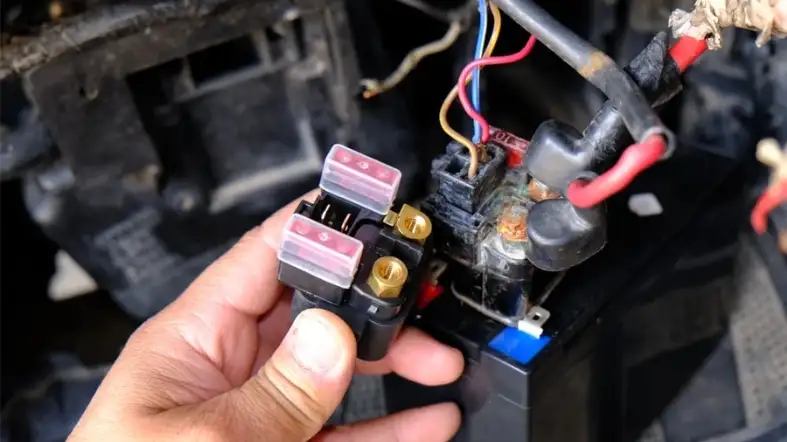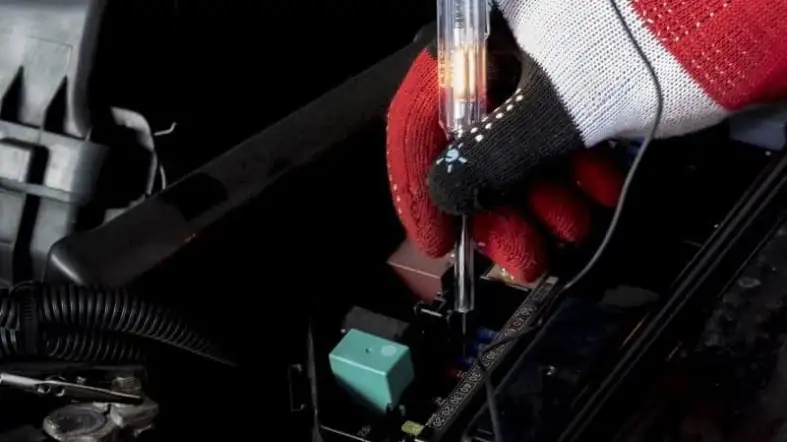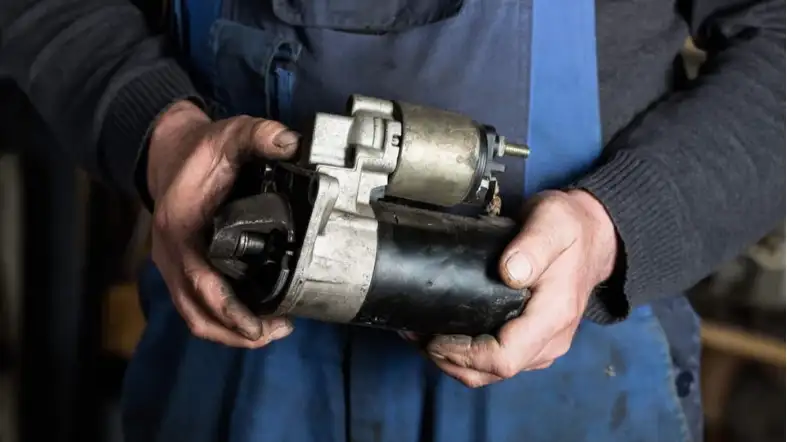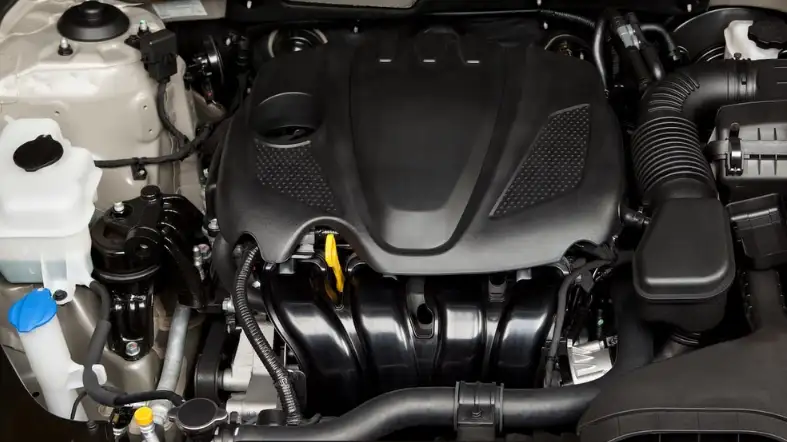Have you ever experienced the frustration of turning the key in your car’s ignition and getting no response?
The culprit behind this common issue could be a bad starter or relay. But what exactly are these components, and how do they work?
In this article, we’ll provide a brief overview of starters and relays, including their function and common signs of failure.
We’ll also explore the importance of addressing these issues promptly to avoid further damage to your vehicle.
Signs of a Bad Starter or Relay
If you’re having trouble starting your car, it could be due to a bad starter or relay.

A bad starter or relay can cause your engine to crank slowly, not start at all, or make strange noises.
Here are the signs of a bad starter or relay so you can diagnose the problem and get your car running again.
Slow Cranking or Clicking Sound
If the engine cranks slowly or makes a clicking sound but doesn’t start, it’s a sign that the starter or relay is not functioning properly.
In this case, you may need to have the starter or relay replaced.
No Cranking Sound
If you turn the key in the ignition and hear nothing, it’s likely that the starter or relay is not functioning at all.
This could be due to a dead battery or a problem with the electrical system, but it’s also possible that the starter or relay has failed.
You can test the battery by turning on the headlights and checking if they’re bright. If they’re dim or don’t turn on at all, the battery may be dead.
Whirring or Grinding Noise
If you hear a whirring or grinding noise when you turn the key in the ignition, it’s a sign that the starter or flywheel is not engaging properly.
This could be due to a worn out starter motor or a damaged flywheel. In either case, you’ll need to have the starter or flywheel replaced to get your car running again.
Intermittent Starting Problems
If your car starts sometimes but not other times, it could be due to a faulty starter or relay.
Intermittent starting problems are often caused by loose connections or worn out components.
You may need to have the starter or relay inspected by a mechanic to determine the root cause of the problem.
Causes of a Bad Starter or Relay

A bad starter or relay can cause a variety of starting problems, but what causes these components to fail in the first place?
Here are some of the most common causes of a bad starter or relay:
Electrical Issues
A bad starter or relay can be caused by problems in the electrical system. This could be due to a dead battery, corroded connections, or a faulty alternator.
Wear and Tear
Like any mechanical component, starters and relays can wear out over time. This can be accelerated by frequent use or exposure to extreme temperatures.
Improper Installation
If the starter or relay was not installed properly, it may fail prematurely. This could be due to incorrect wiring or loose connections.
Faulty Components
In some cases, a bad starter or relay may be caused by a faulty component, such as a solenoid or motor.
Manufacturing Defects
Although rare, manufacturing defects can cause a starter or relay to fail prematurely.
This could be due to a faulty design or a problem during the manufacturing process.
Note: It’s important to note that the specific cause of a bad starter or relay may vary depending on the make and model of your vehicle.
If you suspect that you have a bad starter or relay, it’s best to have your car inspected by a mechanic.
They’ll be able to diagnose the problem and recommend the appropriate repairs.
How to Fix a Bad Starter or Relay

If you’ve determined that your car’s starting problem is due to a bad starter or relay, you may be wondering how to fix it.
Here are the steps you can take to fix a bad starter or relay:
Confirm the Problem
Before you start any repairs, it’s important to confirm that the starter or relay is the problem.
This can be done by testing the electrical system and performing a visual inspection of the starter and relay.
Replace the Starter or Relay
If the starter or relay is the problem, it will need to be replaced. This is typically a job for a mechanic, as it involves removing the old component and installing a new one.
The cost of the replacement will depend on the make and model of your vehicle, as well as the cost of the replacement part.
Check the Battery
In some cases, a bad starter or relay may be caused by a weak or dead battery.
Before you replace the starter or relay, it’s important to check the battery to ensure that it’s functioning properly.
This can be done using a battery tester or by taking your car to a mechanic for a battery test.
Inspect the Electrical System
If the starter or relay has failed, it’s possible that there may be problems elsewhere in the electrical system.
It’s important to inspect the electrical system, including the wiring and connections, to ensure that there are no other issues that could cause the new starter or relay to fail prematurely.
Test the Repair
Once the new starter or relay has been installed, it’s important to test the repair to ensure that the car starts properly.
If the car still has starting problems, it’s possible that there may be other issues that need to be addressed.
How to Prevent Bad Starter or Relay Issues

Dealing with a bad starter or relay can be a frustrating experience, but there are steps you can take to prevent these issues from occurring in the first place.
Here are some tips for preventing bad starter or relay issues:
Keep the Electrical System Maintained
Regular maintenance of the electrical system can help prevent problems that can lead to a bad starter or relay.
This includes keeping the battery charged and replacing it when necessary, cleaning the battery terminals, and checking the alternator.
Use Quality Components
When replacing a starter or relay, use quality components that are designed for your specific make and model of vehicle.
This can help prevent premature failure due to faulty components or poor design.
Install Components Correctly
When replacing a starter or relay, make sure that it is installed correctly.
This includes ensuring that the wiring is connected properly and that all bolts and screws are tightened to the manufacturer’s specifications.
Avoid Overworking the Starter
Avoid turning the key for extended periods of time, as this can overwork the starter and cause premature failure.
If the engine doesn’t start after a few seconds, wait a few minutes before trying again.
Address Starting Issues Promptly
If you notice any problems with your car’s starting system, such as slow cranking or clicking sounds, address them promptly.
Ignoring these issues can lead to more serious problems down the road, including a bad starter or relay.
FAQs
Can A Bad Starter Or Relay Cause Other Problems?
Yes, a bad starter or relay can cause other problems if not addressed promptly.
It can put additional strain on the battery and alternator, and can even damage the flywheel or other components if left unattended for too long.
How Long Does A Starter Or Relay Typically Last?
A starter or relay can last anywhere from 50,000 to 100,000 miles, depending on the make and model of your vehicle and how well the electrical system is maintained.
Can A Bad Starter Or Relay Drain The Battery?
Yes, a bad starter or relay can drain the battery if it’s not functioning properly.
This is because the starter or relay may continue to draw power from the battery even when the engine is not running.
How Much Does It Cost To Replace A Starter Or Relay?
The cost to replace a starter or relay will depend on the make and model of your vehicle, as well as the cost of the replacement part.
Typically, you can expect to pay anywhere from $200 to $500 for a starter or relay replacement.
Final Words
A bad starter or relay can cause a lot of frustration and inconvenience for any vehicle owner.
Understanding the signs of failure and addressing the issue promptly can save you from costly repairs down the road.
Whether you choose to diagnose and fix the issue yourself or take it to a professional mechanic, it’s important to ensure that the replacement parts are of good quality and compatible with your vehicle.
Remember, the starter and relay are essential components for your vehicle’s proper functioning, so taking care of them will ultimately save you time and money in the long run.
By following the advice and tips in this article, you can keep your vehicle running smoothly and avoid any future breakdowns.
